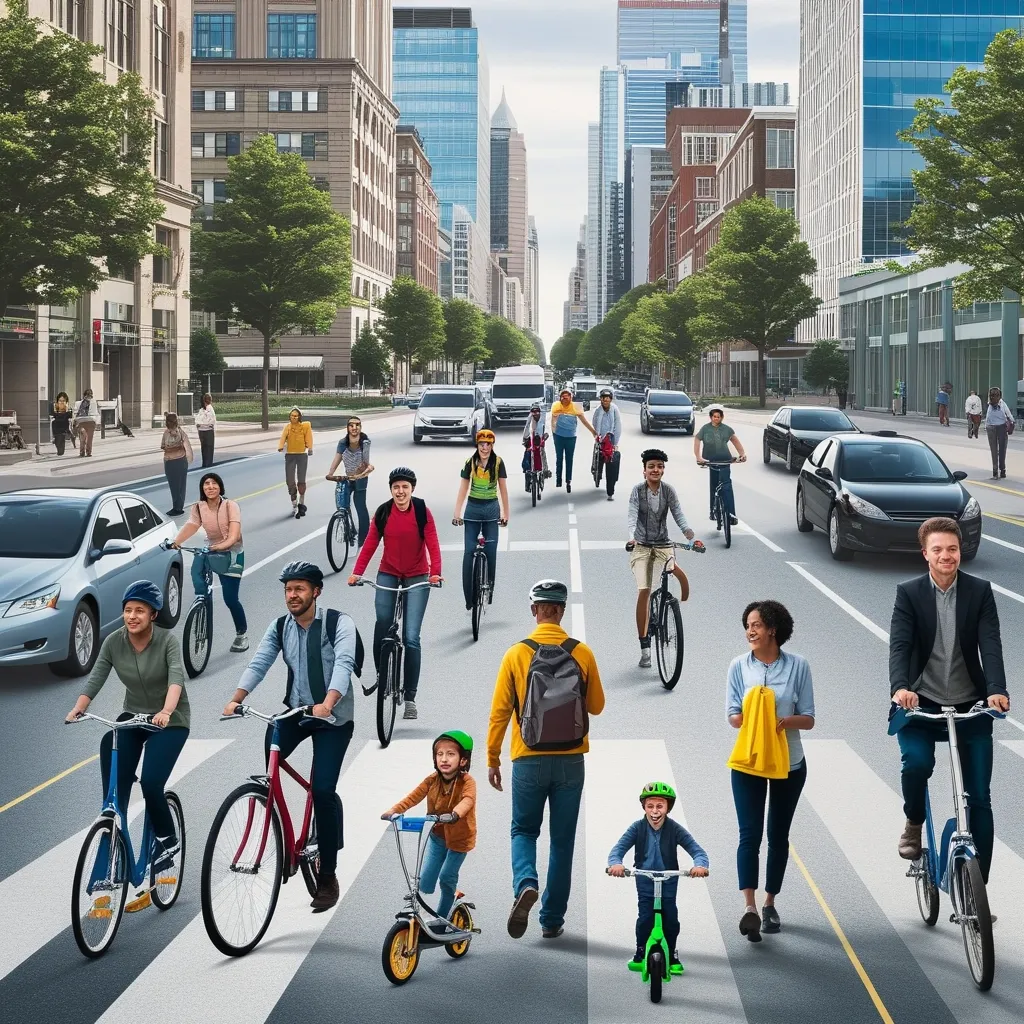When it comes to commuting, the desire to save money and reduce our carbon footprint is more pressing than ever. Luckily, there are plenty of sustainable commuting tips to help achieve both these goals. Not only that, but making these eco-friendly adjustments can add some fun and satisfaction to your daily routine!
Walking, biking, and even scooting aren’t just trendy; they’re incredibly effective for reducing one’s carbon footprint. Take a stroll or pedal your way to work and cut down your household’s CO2 emissions by a whopping 1,000 pounds yearly. Plus, you’re giving your health a major boost. Walking or biking to school can make kids more fit and less prone to obesity. For adults, living in bike-friendly and walkable neighborhoods often translates to better overall health, including lower risks of heart diseases and diabetes. Simply put, moving around on your own two feet or two wheels can even decrease your chances of having a stroke.
When biking or walking isn’t practical, public transportation comes to the rescue. Buses, trains, and subways generate fewer emissions per passenger mile compared to solo drives in a car. Plus, skipping the driving part can turn your commute into a me-time session where you can read, catch up on podcasts, or just relax. Public transit systems are also getting cleaner and more efficient, making this choice even greener. By hopping on public transit for just a few trips, you can reduce your household’s carbon footprint by up to 6,000 pounds of CO2 every year!
Carpooling is another goldmine for sustainability. Sharing a ride not only reduces emissions but also halves your fuel and parking costs. Carpool for a month and see your savings shoot up by as much as $1,100 annually! Another handy trick is to combine errands into one outing. Short trips on a cold engine waste twice as much fuel. So, if you need to run several errands, try to knock them all out in one go.
Sometimes, we have no choice but to drive. Even then, there are smarter ways to do it. Aggressive driving habits can kill fuel efficiency. Floor the gas pedal or slam the brakes, and you are not just damaging your car but also wasting fuel. Driving over 60 miles per hour can drop your fuel mileage significantly. Avoid idling when you can; it’s just wasting gas. Regular car maintenance is your friend too, optimizing fuel usage and keeping emissions in check.
Electric vehicles (EVs) are a game-changer if a car is absolutely necessary. They have a notably smaller carbon footprint compared to traditional cars. While the initial purchase might sting a little, the long-term savings are impressive—an EV can save you up to $14,480 over 15 years in fuel costs alone!
Packing light isn’t just good advice for backpackers; it’s also worth keeping in mind for any trip. The heavier your luggage, the more fuel it takes to transport it. Carry lighter luggage, and you can notably reduce emissions. Slowing down your travel pace can be equally beneficial. Instead of zipping from one destination to another, consider spending more time in fewer places. This not only reduces travel emissions but also enriches your travel experiences, letting you absorb more of each destination.
We all have unavoidable emissions at times. In such instances, purchasing carbon offsets can help. These are investments in projects that reduce emissions elsewhere, such as renewable energy developments or reforestation efforts. This way, you’re still contributing positively, making up for the emissions you can’t avoid.
Moving closer to work is another impactful way to shrink your carbon footprint. Being near your job makes walking, biking, or taking public transportation far more feasible. Urban areas, with their good walkability and transit options, naturally entail a lower carbon footprint.
Going carless might seem extreme but is totally doable with today’s alternatives like ride-sharing or car rentals. Without owning a car, you cut down fuel and maintenance costs while also reducing environmental impact. These services offer the flexibility of a car without the hassle or carbon hit of ownership.
Remote work is the ultimate commute-ender. If the job allows, even working from home once a week can result in a striking reduction of 24 million tons of CO2 annually. With remote work, the need to commute vanishes entirely, showcasing a significant environmental benefit.
In the grand scheme of things, making your commute more sustainable is not just possible; it’s relatable and feasible. From choosing active transportation modes, using public transit, carpooling, driving more efficiently, considering an EV, packing light, slowing down, buying carbon offsets, moving closer to work, going carless, to opting for remote work, the options are numerous and can fit into just about any lifestyle. These small, thoughtful changes, when combined, can bring about substantial benefits for both the wallet and the planet. Start integrating these tips into your daily routine and watch as they transform not only your commute but also the world around you.






